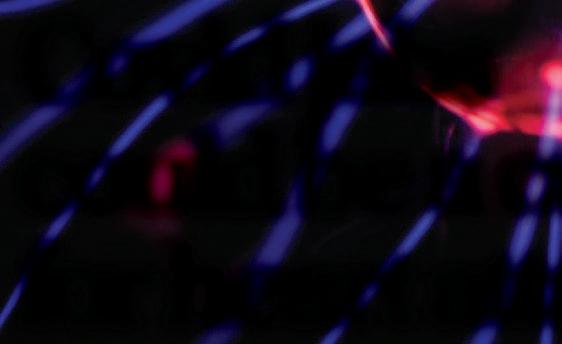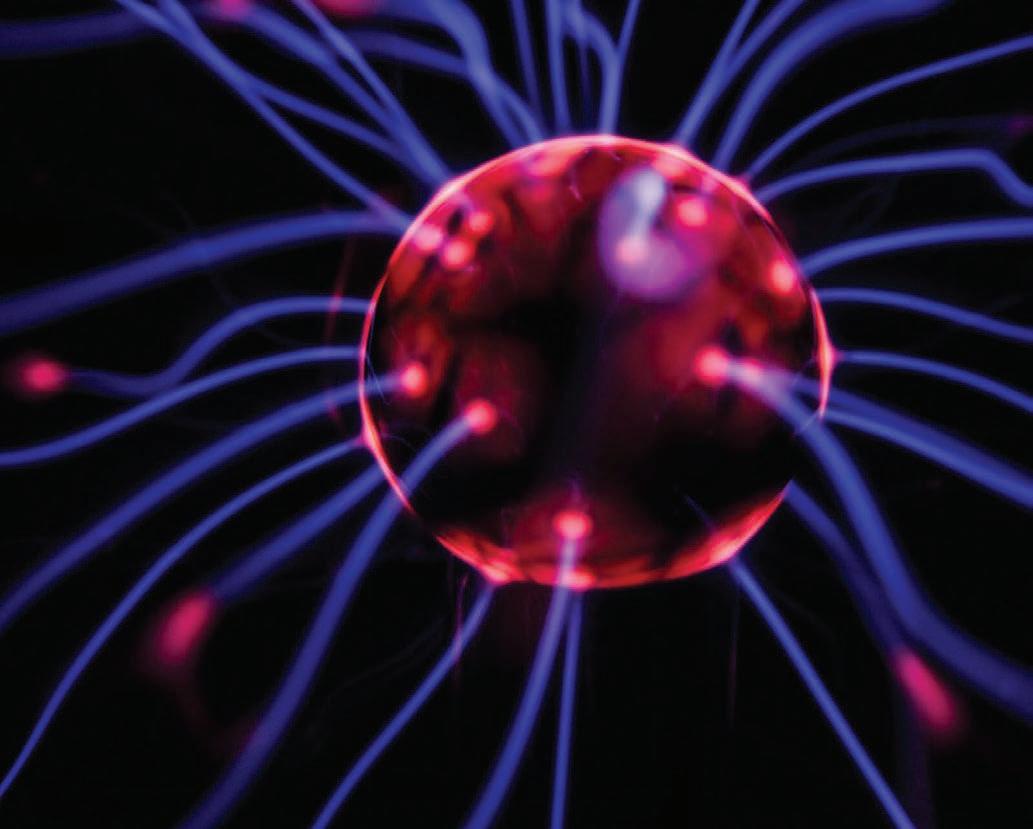
6 minute read
Health & Science
THE same technology being used for Covid vaccines is also being used in an e ort to develop the world’s rst cure for victims of cardiac illness.
According to e Times of London, scientists at King’s College London have identi ed key genetic codes — called mRNAs — which produce proteins that stimulate the creation of healthy new heart cells. ese mRNAs can be delivered directly to the heart muscle following a heart attack by deploying the same technology as the P zer and Moderna vaccines. e ground-breaking research has also identi ed proteins that could be injected into heart attack patients in the back of an ambulance to prevent heart cells dying. Because the human heart has no ability to repair itself, victims are left with a permanent scar that often leads to debilitating and potentially deadly heart failure. e new RNA (ribonucleic acid) therapy has the potential to transform cardiovascular medicine and prevent millions of heart attack victims developing heart failure.
Advertisement
So far the revolutionary approach has been successfully used to regenerate damaged pig hearts and is due to start human trials within two years.
Professor Mauro Giacca, who is leading the research, said: “We are all born with a set number of muscle cells in our heart and they are exactly the same ones we will die with. e heart has no capacity to repair itself after a heart attack. Our goal has been to nd a treatment that can convince surviving cells to proliferate.
“Regenerating a damaged human heart has been a dream until a few years ago, but can now become a reality.
“We are using exactly the same technology as the P zer and Moderna vaccines to inject micro RNAs to the heart, reaching surviving heart cells and pushing their proliferation. e new cells would replace the dead ones and instead of forming a scar, the patient has new muscle tissue.”
Prof. Giacca’s team, based at the British Heart Foundation Centre for Research Excellence at King’s, is also developing a treatment to prevent cells from dying during a heart attack
He said: “We have identi ed three proteins which stop heart cells from dying by encouraging them to repair themselves. e idea is to now produce these proteins so they can be injected immediately after a heart attack — in the back of an ambulance or when the patient reaches the hospital.” After a patient’s condition has stabilised, the other therapy — encouraging the growth of healthy heart tissue — could then be delivered directly to the coronary artery via a catheter.
Prof. Giacca said: “If clinical trials go well it would be blockbuster medicine in the history of cardiology. Both approaches are super-exciting. It would be really transformative. It is a completely new territory.
“ e treatment revolution that has occurred in cancer in recent years, where there is immunotherapy and targeted biological therapies, has not occurred for the heart. Treatment for heart attacks and heart failure remains very similar to 50 years ago and the main pillars of therapy are drugs that were developed in the 1970s such as beta-blockers and ACE inhibitors.”
Giacca, who moved to London from the University of Trieste in 2019, acknowledged there were challenges ahead but was optimistic human trials would be completed within three years.
He said: “Testing has so far been on mice and pigs that are young and healthy, not an elderly human. But there is no way of solving that except during the trial.”
Before the pandemic, medical research into a type of genetic code called RNA was considered an obscure and experimental eld. en, in December 2020, the P zer-BioNTech vaccine was approved by medical regulators, becoming not only the world’s rst Covid-19 jab but also the rst ever RNA treatment.
RNA molecules are the messengers which translate DNA, your genetic code, into instructions for cells to make the millions of di erent proteins vital for our bodies to function.
Scientists have now gured out a way of hijacking this process, inserting synthetic RNA into human cells so they produce whatever speci c type of protein they desire. e P zer and Moderna messenger RNA (mRNA) vaccines, for example, contain a genetic instruction for cells to produce the spike protein of the Covid-19 virus. is then causes the body to produce antibodies against the spike protein, training the immune system to act quickly when infected with the real thing.
Covid jabs could be a cure for heart attacks

Hopes high for treating MS
THE future of treating multiple sclerosis may lie in immune cells against glandular fever, scientists have claimed.
In a small trial, patients with MS were implanted with T-cells that target the virus that causes glandular fever.
Brain scans suggested the progression of the condition was slowed down or even reversed some su erers.
Patients who yielded results also had ‘sustained disability improvement’, including being able to walk with less pain.
T-cells were extracted from people who had recovered from Epstein-Barr virus, which has been touted as a possible cause of MS.
US scientists who did the research accept the study was small and could not rule out the placebo effect — when someone feels better simply because they expected to.
But it could mark a signi cant step forward in experts’ understanding of MS, which is currently incurable and can only be managed with drugs. e news comes after a major study by Harvard scientists of 1million soldiers found EBV could be the main cause behind multiple sclerosis (MS) — with EBV patients 32 times more likely to develop it. e crippling condition is caused by someone’s immune system attacking nerve cells, resulting in symptoms that include fatigue and dif culty walking.
Progressive MS occurs in one in 10 patients, and involves the condition to deteriorate consistently over time with no relapses. ere are very few treatment options. e new T-cell therapy has been created by US rm Atara Biotherapeutics, based in San Francisco, California.
It involves extracting immune cells known as ATA188, which are found in people who have successfully fought o Epstein-Barr.
It is given to people via injections. e cells were donated by people who had su ered an EBV infection and were immunologically matched to the patients — to avoid rejection. t is not clear how regular doses were given to patients, or how much of the drug they were injected with.
Twenty of the original 24 given the injections saw their condition improve or stabilise after a year.
After three years, nine also had improvements when measured on using brain scans.
Professor Mark Freedman, a neurologist at the University of Ottawa who was not involved in the trial, said a natural reversal in progressive MS is incredibly rare — suggesting the Atara trialled therapy was behind improved outcomes.
He said: ‘When a patient reaches a certain level of advanced disability, it is rare for them to naturally revert, and any improvement that is sustained would not be expected from the natural history of the disease. Further research is needed before people get too excited about the treatment. e Phase I trial did not test against a control variable, with researchers admitting results could be caused by the placebo e ect.
A study published in Nature in January showed the proteins produced by the EBV are very similar to the human proteins produced by the nervous system.
Around 95 per cent of people alive today have been infected with EBV, which causes mononucleosis e virus is also believed to be behind several autoimmune disease, including chronic fatigue syndrome and encephalomyelitis.










